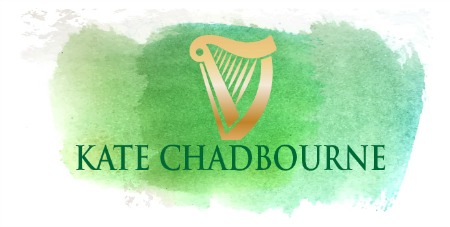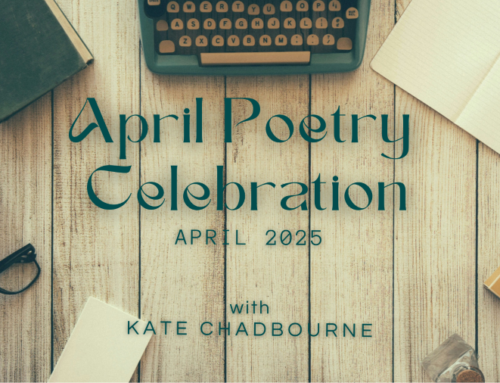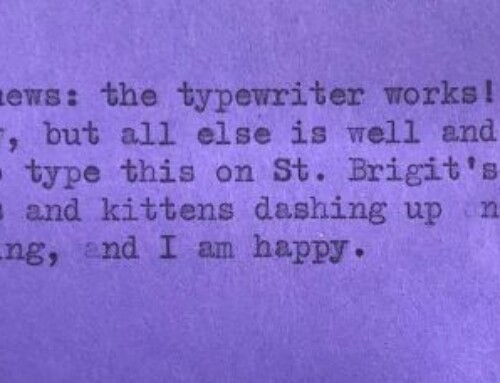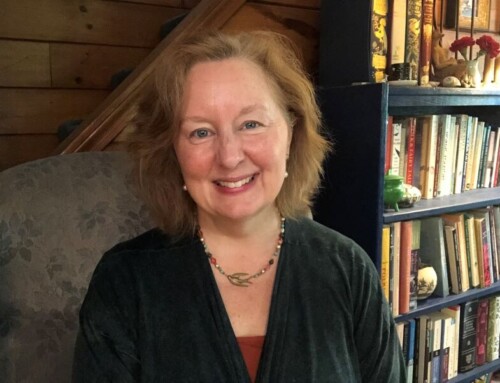How do we really change our lives? What defines the moments when we leave behind one stage of life and enter another?
While it’s comforting to think that we achieve a desired change by making a well-considered plan and calmly executing it, in my own life, the biggest changes have followed from the words, “I don’t care.”
I’ve uttered this phrase several times in my life right before leaping into something entirely new and uncertain, armed with the conviction that the unknown is surely better than what I’m leaving behind.
“I don’t care” energy is spurred on by frustration or even anger, accompanied by a heaping dose of clarity, and always leads to a larger, freer life because it requires me to be brave.
One example and what came of it
Years ago, when I first got divorced, I taught writing at a Boston-area college. As always, I liked the kids, and I enjoyed the challenge of helping them learn how to think and write.
What I didn’t like was the abysmal pay, the impossibility of any kind of promotion or research funding, and the endless slog of essays to grade. Looking ahead, it was painfully clear that if I went on like this much longer, I would regret it. Where was the music and poetry that sang to me? Where was the sense of adventure and eagerness?
One day, I told my supervisor that I was considering not coming back in the fall. “Are you, or aren’t you?” she demanded. “I need to know.”
“I’m not,” said my mouth, utterly astonishing my brain. What had I just done? I had a mortgage to pay and no one to support me. I was on my own, and here I was, throwing aside a perfectly good university job for the prospect of what? Merely the idea of freedom and the notion of making a life based in the arts. Was this prudent?
Yet, as I drove away, every fiber of my being told me I had done the right thing. I was filled with wild excitement, giddiness, and steely determination.
“I don’t care what happens. I need to do this,” I told myself. “I’ll find a way.”
Ten years later and I can attest that that “I don’t care” moment delivered me into a life of deep interest and fulfillment, of creativity and sovereignty.
I swan-dived out of the dreary known and into the murky but alluring unknown, and it was more than worth it.
It required courage and very hard work from me, and yet I would choose it all over again because it feels like being alive rather than merely existing.
Another example that brought a better life
A few years after founding The Bardic Academy, I decided to raise the hourly tuition. We had gone on for two or three years at the same ridiculously low rate. When I shared the news, I was trembling. I was terrified of angering anyone, and I was in such a precarious position financially that I was afraid of losing students.
As it happened, one of my students was furious and threatened to stop attending lessons.
The curious thing is that when she yelled at me, I found myself oddly calm. I reflected on her habit of staying for two or three hours instead of the one covered by the tuition and of deciding at the last minute to cancel our standing appointment. I truly liked and cared for her, but I knew the situation had to change.
“I don’t care if she leaves,” I told myself. “Things can’t go on like this. And surely, more people will come in.”
That was true. As though by magic, more people came almost as soon as I made that decision.
And although the student did leave, she returned a month later, now willing to pay the slightly higher tuition. We went on happily after that for years, and I felt stronger and more truthful. I needed to learn not to be so afraid and to trust myself and what I knew to be true. My “I don’t care” moment was a great teacher in that regard.
How “I don’t care” has helped me – and might help you
“I don’t care” has served me well. It usually precedes a risk of some kind, but it’s always a risk worth taking and one which yields important benefits.
It comes from a conviction that something is not right and needs to be different. It’s important because it announces to the self that there is a bigger value that needs to be honored.
In my life that value has often been self-respect, loyalty to my true calling, and a sense of aliveness.
I want to be clear that “I don’t care” doesn’t refer to the people involved in a situation. I do care: very much. But sometimes the form a relationship has taken needs to change, and saying these words has been the key to a locked door that stood between an old way and a new and necessary way.
I also don’t believe that we need to let situations get to the “I don’t care” point before we can make a change. In fact, one of the great joys of middle age and beyond is learning to read the signs much sooner and to make changes with a lot less stress and drama.
Still, I am grateful to “I don’t care” for delivering me again and again into a more spacious life and sense of self. Those moments have been pivotal for me.
Of course, in the end, I really DO care.
I care about what I know to be right for me. I care about feels like honor and aliveness. I care about myself.
And because of that caring, I’m willing to call forth my courage and roll up my sleeves and get busy. I’m willing to be a little uncomfortable so that I can be a LOT more joyful.
Dear Reader, may the spirit of “I don’t care” visit you just when you need it most. May it help you create and protect what you care most deeply about. Yes, you may have a lump in your throat and a quake in your hand as you speak those words, but I promise – it’s worth it!
Photo by Thiébaud Faix on Unsplash




